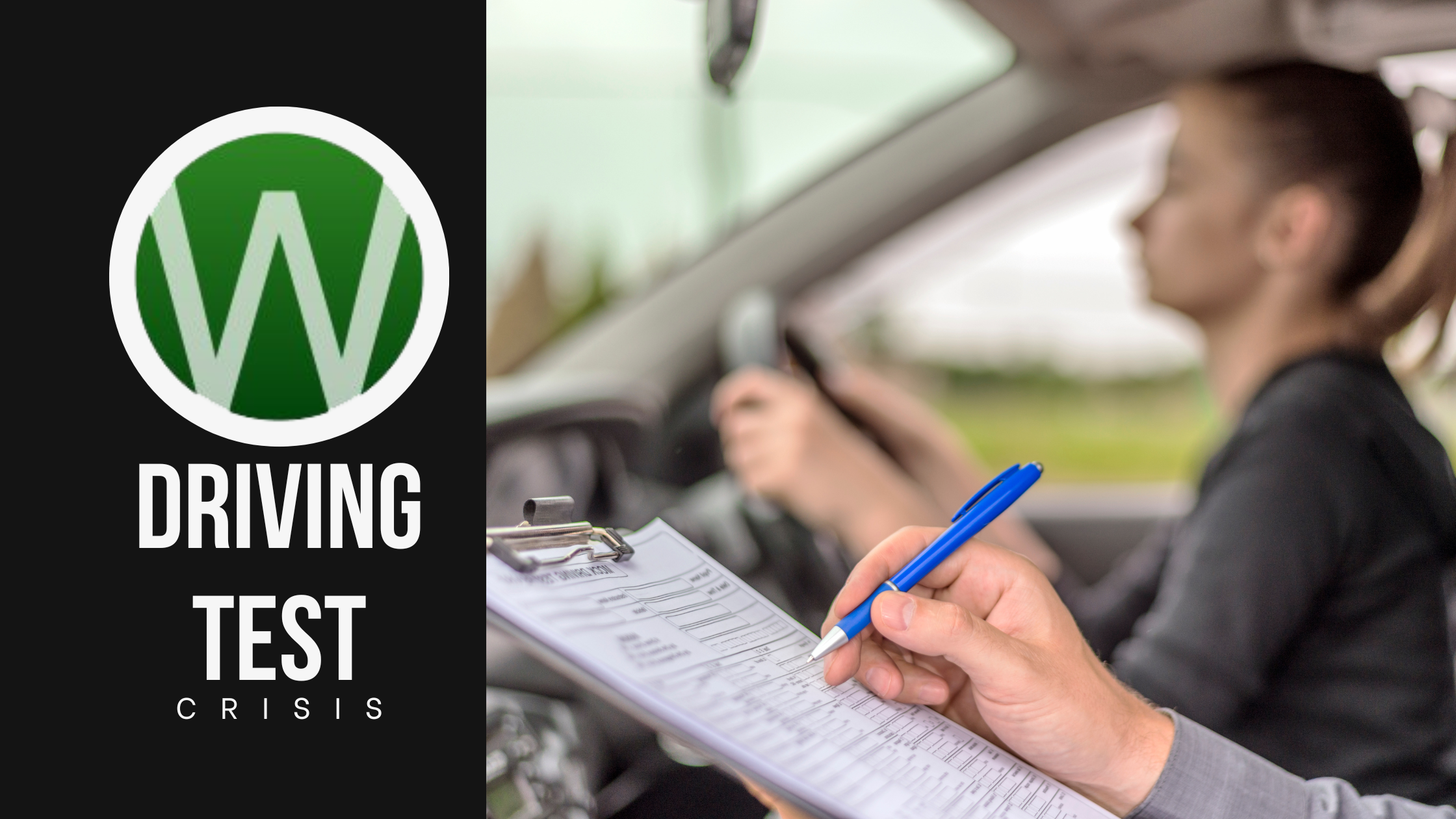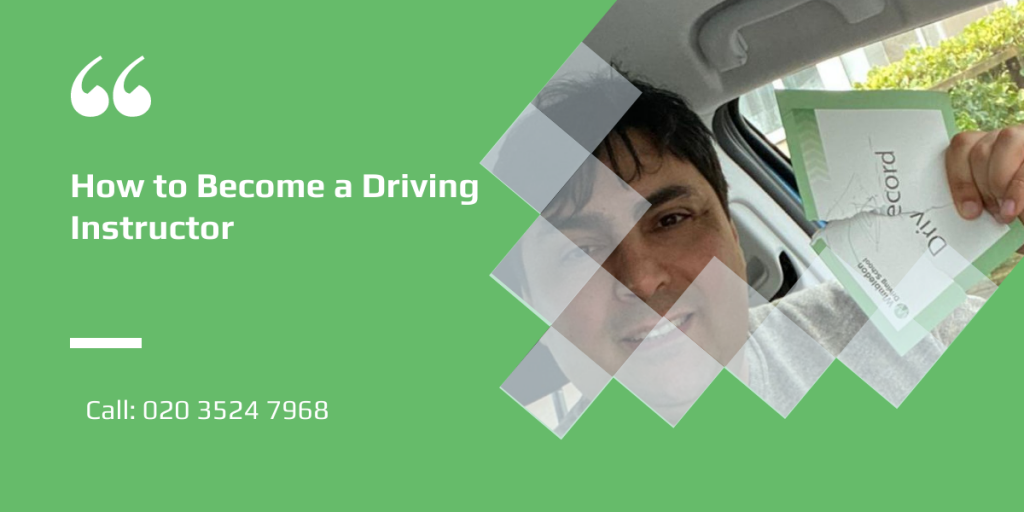Solving the Extended Driving Test Waiting Time Crisis in the UK Post-Pandemic: A Look at Potential Solutions
The Dilemma
The pandemic has caused a significant disruption in the ability for individuals to take driving tests. Between 2020 and 2021, nearly half a million tests were cancelled.
The Driver and Vehicle Standards Agency (DVSA) has attempted to address this issue by increasing the availability of tests through extended hours and hiring additional examiners, but the demand for tests still far exceeds the supply.
As a result, waiting times have been as long as 24 weeks in some areas. This has also led to companies and instructors profiting by selling tests at inflated prices.
Not only are individuals facing long waiting times, but many of them also require a license for daily tasks or job opportunities. To address this, the DVSA has implemented a two-pronged approach.The DVSA plans to improve pass rates by supporting learners and holding instructors accountable.
The “Ready to Pass?” campaign offers advice on finding qualified instructors, tracking progress, and managing test-day nerves. Additionally, the DVSA will use data analysis to focus standards checks on instructors with lower pass rates, with the goal of raising training standards and achieving a minimum pass rate of 55%.
As well as trying to improve the quality of candidates taking the test they will also attempt to improve availability of tests and implement changes around the system of booking tests.
This raises the question of why, despite increased support for learners and stricter enforcement for instructors, pass rates have not significantly improved.
What steps can both learners and instructors take to increase pass rates and reduce wait times? Can the DVSA explore operational measures to further reduce the current booking wait times?
Navigating the Long Waiting Times for Driving Tests in the UK: What Learners Can Do
“The only place where success comes before work is in the dictionary.” ― Vidal Sassoon, hairstylist and philanthropist
When it comes to preparing for a driving test, the DVSA (Driver and Vehicle Standards Agency) suggests that on average, a successful candidate has taken 45 hours of professional tuition and an additional 22 hours of private practice with friends or family.
However, it’s important to note that the number of hours needed to pass can vary depending on factors such as age and ability. While some people may need less time, others may require more.
It’s also important to keep in mind that there are no shortcuts and enough practice needs to be done to ensure independent driving without input from an accompanying driver.
It’s also crucial to exercise care when choosing an instructor. The best instructors will come highly recommended, and you can check for schools that have been voted as one of the three best rated driving schools in your area. Wimbledon Driving School, for example, has been voted as one of the three best rated driving schools in London for the past three years.
You can also check for reviews across platforms such as Trustpilot, Google, Facebook, Review Centre and Yell to see past successes. However, it’s important to keep in mind that an instructor who worked well for one individual might not suit a different client due to differences in communication, learning style, and interaction.
A school like WDS provides options through having multiple instructors, so if the first instructor does not suit you, they are likely to have alternate options. They also don’t tie anyone into a commitment to them through block bookings.
Their lessons are all pay as you go, so if at any point clients are not getting the value they expect, there is no need to continue with them.
According to the DVSA, 51 out of 100 people failed a driving test in December 2022. They feel part of this is due to candidates taking tests before they are ready. This is why it’s important to consider several principles before taking a test.
The principle of personal responsibility, the principle of reciprocity, the principle of self-care, and the principle of rationality.
The principle of personal responsibility means that the candidate has a moral and ethical responsibility to ensure they are fully prepared for the test and have the necessary skills to be a safe driver.
The principle of reciprocity means that the candidate has a duty to other road users to be a competent and safe driver, and preparing adequately for the test is part of fulfilling that duty.
The principle of self-care means that the candidate has a responsibility to take care of their own safety and the safety of others by ensuring they are fully prepared for the test before taking it. The principle of rationality means that it is more rational to be fully prepared for the test rather than taking it on the off-chance.
These principles can be applied to determine the appropriate timing for test candidates to take their test, ultimately reducing overall waiting times by minimising the number of failed tests.
It’s also important to note that cognitive biases can play a big role in why people overestimate their ability and want to take tests when they are unready.
The “above-average effect” is where people tend to rate themselves as better than average on various tasks or in relation to certain attributes. This bias can lead people to underestimate the difficulty of the driving test and overestimate their own readiness.
Instructors’ Plan of Action for Shortening Driving Test Waiting Times in the UK: An Exploration of Solutions
“Average players want to be left alone. Good players want to be coached. Great players want to be told the truth.” – Doc Rivers, Basketball Coach.
The scarcity of driving tests and long waiting times for rescheduled appointments discourage people from canceling their tests, leading many to present for the test without being fully prepared. This is further exacerbated by the “above-average effect,” where people believe they are better drivers than they actually are.
This is a concern as the DVSA uses pass statistics to decide which instructors to call for Standards Checks, inspections that can result in removal from the register of instructors if performance is poor.
Therefore, it is crucial for instructors to provide accurate feedback to their clients to help them assess their own strengths and weaknesses and improve their chances of passing the test.
Guiding clients to critically evaluate their own capabilities and progress, rather than benchmarking against others, facilitates self-improvement.
By setting personal goals and striving to surpass previous achievements, individuals are more likely to achieve success and improve beyond average, rather than just perceiving themselves as above-average.
As a compassionate professional, it is important to approach the topic of a client’s insistence on taking a test – despite not being fully prepared – with their best interests in mind. One approach could be to discuss the concept of loss aversion and how it relates to the potential losses they may face if they do not take the time to properly prepare for the test, such as the cost of a failed test and the delay in getting their license.
Additionally, emphasising the benefits of a growth mindset and the potential for improvement through effort and learning can also be a persuasive argument.
Lastly, highlighting any cognitive dissonance the client may be experiencing by pointing out the inconsistency between their desire to pass the test and their lack of preparation can also be used to encourage them to align their behaviour with their goals.
It’s vital to remember that the primary objective is to help the client achieve their goals, not to earn extra income. A reputable instructor or school will recognise this principle and depend on positive feedback as their best means of promotion and future business instead of encouraging clients to take unnecessary classes.
Conclusion: Reducing Wait Times through Collaborative Efforts
“It always seems impossible until it’s done.” – Nelson Mandela
It is important to note the exceptional and unprecedented circumstances that led to the current situation before discussing whether a different approach would have produced superior outcomes.
The driver training industry, along with many other sectors, was significantly impacted by government-mandated closures during large parts of 2020 and 2021, resulting in a significant backlog of tests.
The DVSA has taken steps to improve the quality of test candidates: to best utilise available tests for the benefit of society and the economy. They have also made efforts to increase test availability by offering overtime to examiners and recruiting new staff.
They have also implemented changes to the booking system, such as limiting the use of bots, restricting bookings to companies with driving instructors, and sending text reminders to reduce confusion and wasted tests.
The steps taken by the DVSA to improve the quality of test candidates and increase the availability of tests are commendable and necessary.
However, despite these efforts, there are certain factors that may prevent some candidates from passing the test on the first attempt.
For example, certain personality types such as those who are highly anxious or have a tendency towards perfectionism may struggle more with test anxiety.
Similarly, individuals who are more introverted or have lower self-esteem may be more affected by lack of confidence.
Anxiety disorders are common, with studies suggesting that around 18% of the adult population in the United States have an anxiety disorder, and around 40% of people experience test anxiety at some point in their lives.
Research (Fairclough et al. 2006) shows that in the United Kingdom, learner drivers typically experience higher stress levels during formal driving tests than during lessons and mock tests.
This is understandable, as some level of stress can help keep a person focused and alert. However, the study also found that those who reported the highest levels of anxiety before the test were more likely to fail.
Widespread anxiety and its effect on performance indicate that conventional driving test prep may be inadequate unless psychological training becomes more prominent in driver education. The DVSA is discussing mindfulness, but it’s not widely implemented by instructors yet.
Therefore, while efforts to improve the calibre of candidates are important, it is likely that they will only be effective to a certain extent.
For this reason it makes sense to look at how the DVSA are expanding test provision through extra recruitment and changes to booking procedures.
The DVSA’s recruitment of 300 new examiners since the pandemic began may not be as impactful as initially thought. They struggled to recruit in a tight labour market and many of the new hires replaced retiring staff due to the older demographic of examiners.
The state of the labour market and pay incentives for examiners are factors beyond the DVSA’s control. Their budget is determined by the government through a spending review process, limiting their control over staff spending.
In this regards they probably did as well as could be expected given the constraints.
Their booking policies – though much improved – still seem illogical looking in from the outside. Although bookings by non-instructor businesses have been curtailed; we would question why anybody but the candidate themselves should be entitled to secure resources on the booking system.
Allowing instructors access – and privileged access at that, where multiple tests can be secured and sold for decent profit – seems like letting the fox into the henhouse.
We have heard of instructors selling tests for over £200 and completely exploiting customers who are desperate to get a test.
The outside businesses who had been similarly overcharging customers in dire need of tests, saw these people as targets to profit off. It is even sadder in our opinion that instructors who spend many hours with customers and who can put faces to names, saw the same pound signs and decided to trade their decency for greed.
The terms of use for the instructor booking service have been revised to prevent profit-making and allow for an administrative fee. Instructors continuing to charge excessive fees for booking tests are conforming to the revised terms by justifying the extra charge as “administrative.” In effect nothing has changed, other than the label given to the charge for booking tests.
We support fair competition and believe it often leads to better products and services. However, this is not the case with test booking. It’s a zero-sum game because all tests come from a government monopolist: meaning private companies can’t increase the supply of tests. Competition for earlier dates only creates inequality, as those who can pay more move ahead in line for government services.
Charging a priority rate by the DVSA – with revenues going towards increased recruitment and test supply – would be a better solution than the current scenario where private entities earn more than the DVSA fee for just rescheduling the test.
There is only one argument we can think of why instructor businesses are allowed to manage clients tests and that is to facilitate intensive courses.
Over the last few years instructors have been encouraged to move away from more traditional test-based training and to consider factors beyond vehicle control and integration with other road users such as: the purpose of the journey, technological distractions, passenger distractions or how tiredness may play a role in driving decisions and potential mistakes.
Intensive courses due to the pressures of an imminent test leave little room to explore these issues and produce a more one-dimensional driver as opposed to a rounded and robust driver who has greater understanding than just how to deal with a car in traffic.
Learners given a broader education know how to deal with themselves in a car regardless of whatever else is happening in their lives. Enabling instructors to book lots of tests presumably to leave open the option of intensive courses runs contrary to this general ethos and is a retrograde step in our opinion.
We run one of the bigger driving schools in South London and have never felt the need to centrally control test dates on behalf of our clients.
Moreover although intensive courses can be popular; for most instructors they represent a small part of their overall business.
The majority of clients learn with weekly lessons. If these people are unable to get tests, that causes substantial disruption to instructors diaries.
Lessons get suspended and by the time the client wants to pick the lessons back up again, instructors have usually filled their diary with new customers, as they have bills to pay and cannot afford to wait, often months, for clients to get a test and resume their lessons.
This can cause serious scheduling issues and more frustration for the learner who does not have a perspective on why instructors cannot afford to wait around without income and will expect their instructor to fit them in and can get upset when this doesn’t then happen.
Despite these missteps, the DVSA has made progress in other areas and sees hope for resolving the issue. Transport Minister Richard Holden informed the House of Commons that the waiting list for practical tests is decreasing quickly and should be manageable in the near future.
The DVSA’s goal is to reduce waiting times to 9 weeks.
To reduce waiting times for driving tests, clients, instructors, and the DVSA have taken various actions. However, the practice of allowing instructors to book tests for clients has lead to uneven distribution and access to tests for very many instructors and their clients and the enrichment of certain individuals who have become part of the problem rather than part of the solution.
The majority of instructors feel that they are being threatened by enforcement measures for a problem that the DVSA has inadequately addressed.
They believe that the DVSA is allowing certain individuals to book a significant amount of tests, leaving insufficient tests for the wider instructor community. This is seen as unfair and leading to extra charges for clients. Whether this is the reality or not, optics are important.
It’s essential to recognise that candidate readiness and test success impact wait time reduction. Improving candidate standards is a step to solve the issue and instructors should not feel resentment.
The DVSA is taking other steps and is hopeful to return to normal wait times. In recent years, instructors have felt blamed for backlog issues and felt communication was lacking, particularly at the start of the pandemic.
However, the DVSA recognises that instructors and clients are not the sole cause and is trying to address other issues such as test provision.
The Driver Training industry works best when all parts collaborate. Addressing instructor concerns about the backlog and changes to the booking system can improve access for all and build trust. This way, instructors can be part of the solution instead of just part of the problem.








